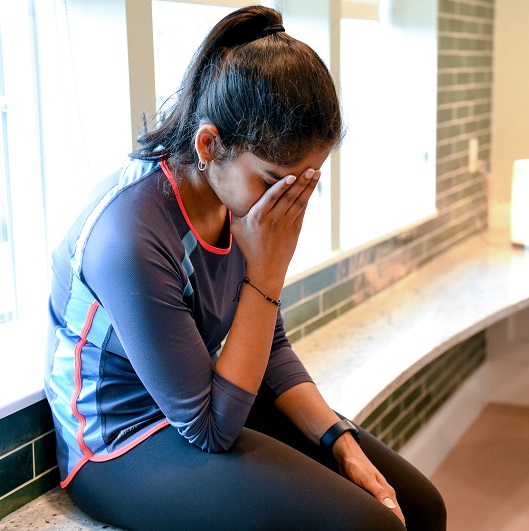Can the COVID-19 Booster Shot Cause Side Effects?

November 08, 2021
Information regarding COVID-19 and vaccines are continually evolving, new details may be available since this content was developed. Please visit the CDC's website for the most up to date information.
If you experienced side effects when you were initially vaccinated against COVID-19, you may wonder if you’ll have any noticeable symptoms in response to your booster shot. While you may have some side effects, they should be no worse than what you experienced originally and may well be milder.
Here are answers to some common questions about side effects and COVID-19 booster shots:
Who is Eligible for a COVID-19 Booster Shot?
Updated (bivalent) COVID-19 vaccine boosters are now available for everyone 5 and older who received their most recent vaccine dose at least two months ago.
If you are eligible for an updated bivalent booster, you can receive the booster from either manufacturer, Moderna or Pfizer, regardless of what you received for your primary series. The monovalent boosters are no longer available for distribution.


What Side Effects are Common After COVID-19 Booster Shots?
Most people who get COVID-19 booster shots experience mild to moderate side effects. Commonly reported side effects include:
- Pain at the injection site
- Fatigue
- Redness and/or swelling at the injection site
- Headache
- Muscle pain
- Joint pain
- Chills
- Fever
- Nausea and/or vomiting
- Swollen lymph nodes under the arm that received the injection
How Soon After the Booster Shot Might Side Effects Occur?
You probably experienced COVID-19 vaccine side effects fairly quickly following your earlier injections. The same is true for COVID-19 vaccine booster shots: Most people notice side effects within the first 24 hours. The symptoms typically only last a day or two. Some people don’t notice any side effects.
Is it Possible to Relieve COVID-19 Booster Shot Side Effects?
There are a few ways to minimize unpleasant symptoms after a booster shot:
- Take over-the-counter medication (acetaminophen or ibuprofen), if you doctor allows it
- Put a cold compress or a cool, wet washcloth on the injection site
- Walk or otherwise keep your arm in motion, rather than sitting idly
Next Steps & Resources:
- Meet our source: Elliot Frank, M.D.
- To make an appointment with Dr. Frank, or a doctor near you, call 800-822-8905 or visit our website.
- If eligible, schedule your COVID booster today
The material provided through HealthU is intended to be used as general information only and should not replace the advice of your physician. Always consult your physician for individual care.
Find a doctor near me
Could You Be Suffering From Long COVID?

While most people recover from COVID-19 after a few weeks, others continue to suffer long after the virus no longer shows up on a COVID test.
Socializing After the Vaccine: How to Do It Safely

It's normal to feel anxiety when venturing out in public, even if you are fully vaccinated — particularly as new virus variants and cases emerge.
Find a doctor near me
Can COVID-19 Cause Brain Fog?

Research shows that 20-30 percent of people may experience brain fog after COVID-19. Learn about the causes and treatment options if you have brain fog.
Can COVID Cause Insomnia?

Dubbed “coronasomnia,” sleepless nights can also be caused by a total disruption of daily routines, monotony in the day or complete lack of a daily routine.
Can COVID-19 Cause Migraines?

People suffering from migraines prior to COVID infection often report that their symptoms grow worse after getting COVID. Here’s how you can find relief.
Can You Get COVID-19 Twice?

Some diseases, like measles, can only infect us once. What about COVID-19?
